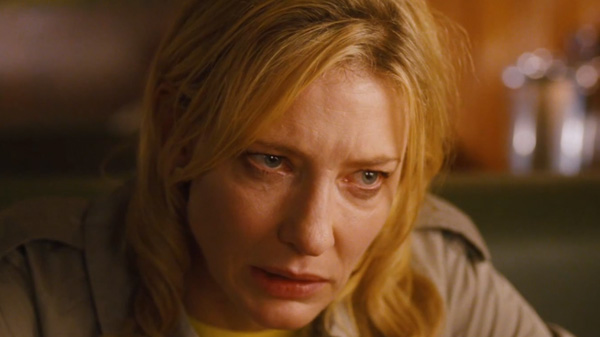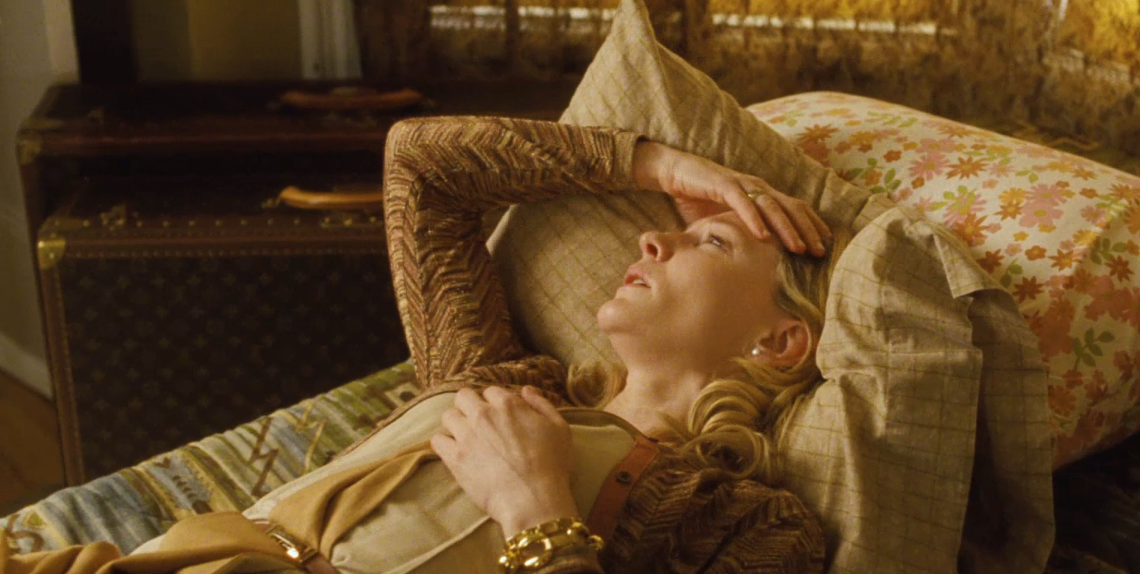Regardless of what you think of Woody Allen’s
personal life, his talent as a writer, director and actor is prodigious and the
sustained quality of his work is truly admirable. Few filmmakers have
managed to produce a consistent artistic output for over four decades.
While I had not personally enjoyed a Woody Allen movie since “Sweet and
Lowdown”, I hoped that Allen’s propensity for witty dialogue and quirky
characters would make “Blue Jasmine” enjoyable, but the film simply stinks.
Cate Blanchett plays Jasmine, a woman who married into great wealth and is now penniless due to her husband’s arrest and conviction over countless illegal business deals. On a plane in the opening scene, Jasmine is having a markedly one-sided "conversation" with an older woman sitting next to her. Something is off. When we next see Jasmine waiting to pick up her luggage, she continues her verbal ramblings. Jasmine's senior seatmate is there, but soon beats a hasty retreat because she can smell the crazy. Jasmine is not well, and as the story unfolds we are forced to watch her mental condition deteriorate further.
Cate Blanchett’s interpretation of a spoiled woman suddenly kicked to the curb is superlative. Her physical beauty is sharply contrasted by the interior ugliness of someone whose narcissism made it easy for her to wrap herself in blinding layers of ignorance. Jasmine’s breakdown is beautifully portrayed, but it is like watching a corpse decompose. While fascinating, it is also repulsive, and the reek of Jasmine's willful self-deception is overpowering. Yet I didn’t feel sorry for Jasmine, but I did feel sorry for Cate. Such an excellent performance is wasted in a film without any empathy for its players. Woody Allen usually displays warmth and affinity with at least some of his characters, but in this film his sneering condescension leaves a lingering odor.
“Wild Man Blues” and the more recent eponymous documentary about Allen painted the portrait of a man whose achievements have allowed him a rarified lifestyle, much like the one that Jasmine has lost, making it easy to interpret “Blue Jasmine” as one of Allen’s current nightmares. Yet, given his autobiographical tendencies in previous films, whether he was mocking the elite or the working class, the humor worked because it felt like Allen knew these characters and liked them despite their flaws. I wonder if his success has isolated him to the point where he can no longer identify with either social strata and now regards both with equal contempt. If that’s the case, then it’s no surprise that instead of resulting in a perceptive critique of human foibles, Allen’s “Blue Jasmine” comes out like a cinematic enema.




